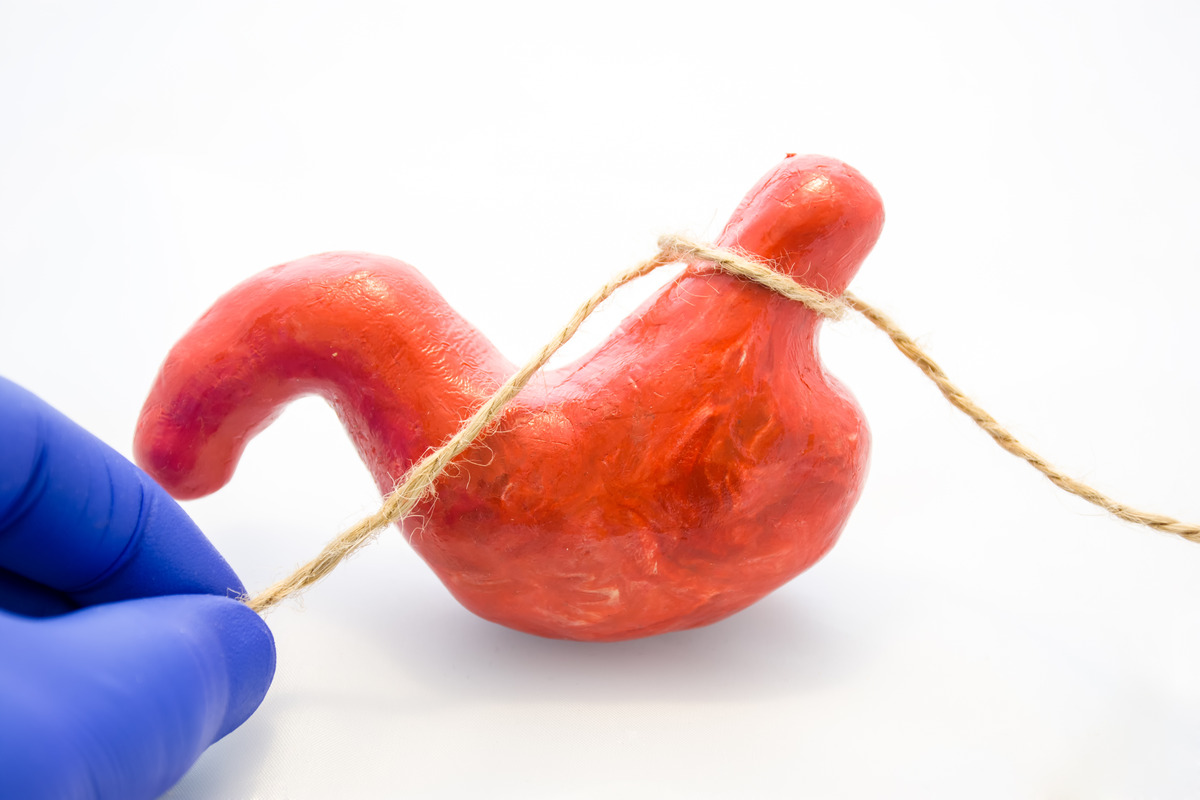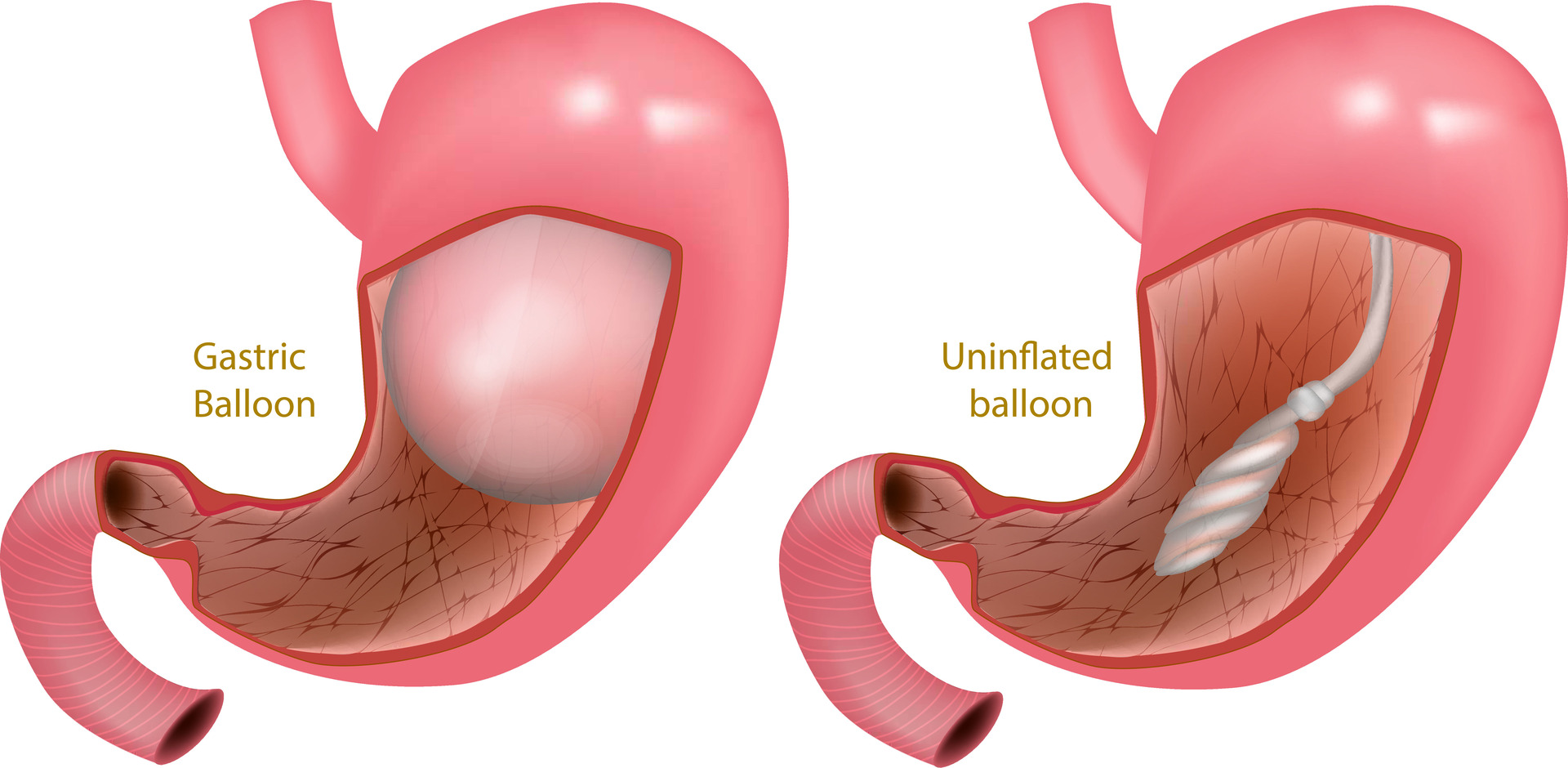Bariatric Surgery
Bariatric Surgery is a surgical procedure aimed at treating obesity by altering the digestive system to promote weight loss. It is typically recommended for individuals who have been unable to lose weight through diet and exercise alone and have a body mass index (BMI) above a certain threshold. Bariatric Surgery works by reducing the size of the stomach or rerouting the digestive tract to limit food intake or nutrient absorption. This can lead to significant weight loss and improvement in obesity-related health conditions. Bariatric Surgery is considered a major life-altering procedure and requires lifelong commitment to lifestyle changes, including dietary modifications and regular exercise, for long-term success.

Gastric Band
Gastric Band, also known as Lap-Band surgery, is a type of bariatric surgery aimed at promoting weight loss. It involves placing an adjustable band around the upper part of the stomach, creating a smaller pouch. This limits the amount of food that can be consumed, leading to a feeling of fullness with smaller portions. The band can be adjusted over time to control the rate of weight loss. Gastric Band surgery is considered a minimally invasive procedure and can be reversible, with the option to remove the band if necessary. It is typically recommended for individuals with a lower body mass index (BMI) and who have not had success with non-surgical weight loss methods.
Gastric Sleeve
Sleeve Gastrectomy, also known as Gastric Sleeve surgery, is a type of bariatric surgery aimed at promoting weight loss. It involves removing a large portion of the stomach to create a smaller, sleeve-shaped stomach pouch. This restricts the amount of food that can be consumed, leading to reduced calorie intake and weight loss. Sleeve Gastrectomy also helps regulate hunger and satiety hormones. The procedure is typically performed laparoscopically, resulting in smaller incisions and a shorter recovery period. Sleeve Gastrectomy is a permanent procedure and can be an effective option for individuals with obesity and related health conditions who have not achieved significant weight loss through other methods.


Gastric Bypass
Gastric Bypass is a type of bariatric surgery aimed at promoting weight loss by altering the digestive system. It involves creating a smaller stomach pouch and rerouting the small intestine to bypass a portion of the stomach and upper small intestine. This restricts food intake and reduces nutrient absorption, leading to significant weight loss. Gastric Bypass surgery also affects hormone levels that regulate hunger and satiety. The procedure is typically performed using minimally invasive techniques, resulting in smaller incisions and faster recovery times. Gastric Bypass can provide long-term weight loss and improvement in obesity-related health conditions.
Gastric Balloon
Gastric Balloon is a non-surgical weight loss procedure that involves placing a silicone balloon into the stomach to create a feeling of fullness and promote portion control. The balloon is inserted through the mouth and then filled with saline solution to occupy space in the stomach. This reduces the capacity of the stomach and helps individuals eat smaller meals. Gastric Balloon is a temporary solution and is typically left in place for a specific period, usually around six months. The procedure is minimally invasive, does not require incisions, and is performed under sedation. It can aid in jump-starting weight loss efforts and improving overall health. However, it is important to note that Gastric Balloon is usually part of a comprehensive weight loss program that includes dietary changes, exercise, and behavior modification. Consulting with a qualified healthcare professional is crucial to determine if Gastric Balloon is the right option for weight loss goals.


Biliopancreatic Diversion
Biliopancreatic Diversion is a type of bariatric surgery that alters the digestive system to promote weight loss. It involves two main components: reducing the size of the stomach and rerouting the small intestine. The procedure removes a large portion of the stomach and redirects food to bypass most of the small intestine, resulting in reduced calorie absorption. Biliopancreatic Diversion can lead to significant weight loss and improvement in obesity-related health conditions. However, it is a complex procedure and is typically recommended for individuals with a high body mass index (BMI) or those who have not achieved success with other weight loss methods. The surgery requires careful monitoring of nutritional intake and lifelong adherence to dietary guidelines and supplementation.
HEALTH IN GO MEDICAL SURGERY CENTER
We Are Here To Assist You




